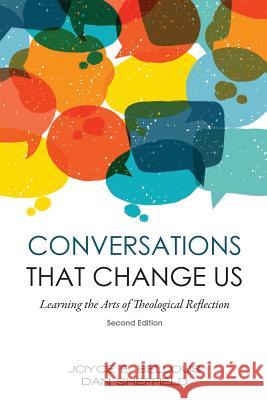Conversations That Change Us - 2nd Edition: Learning the Arts of Theological Reflection » książka
Conversations That Change Us - 2nd Edition: Learning the Arts of Theological Reflection
ISBN-13: 9780981014944 / Angielski / Miękka / 2017 / 242 str.
The book provides models for theological reflection that include personal and collaborative approaches. It begins by asserting that theological reflection is a conversation that can become dialogical under certain conditions. The notion of dialogue is based on South American educational theorist Paulo Freire's work.Theological reflection is a conversation among participants including God, others and oneself. As the theological models are presented and developed, the impetus of the book is respect for well-known pillars of Christian theological inquiry that include Scripture, Tradition, Reason and Experience.All four of these aspects of inquiry are used and developed as a means for helping people think theologically. The book includes the use of specific Scriptures as the basis for educational theories presented. In terms of its reliance on Tradition, the practice of Lectio Divina is explained and developed. The book distinguishes healthy from unhealthy reason and outlines the trajectory of reason during the twentieth century that tended to undermine confidence in the role of faith in Christian experience. It also picks out an error made by secular theorists that's at the root of modern assault on the reasonableness of faith.Throughout, the book helps the reader apply personal experience to the practice of theological reflection. In addition, Conversations offers a framework and method for working across cultures to help the reader recognize how Scriptures need to be interpreted in different cultural settings. This culturally-based model and case study invites a reader to reassess taken-for-granted assumptions that populate ordinary experience but that are no longer reliable as one encounters Otherness presented by those who don't share individual, social, family or country of origin experience.In addition, the book introduces a model for collaborative theological reflection that captures the essence what's necessary when people who differ from one another begin to work together as they think theologically and as they actually create dialogical, collaborative reflection based on Scripture, Tradition, Reason and Experience.











